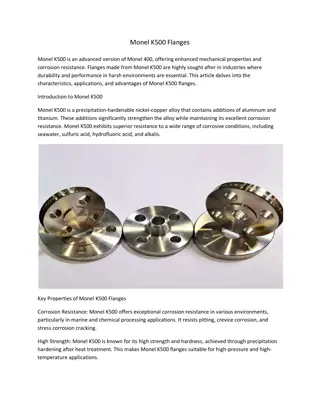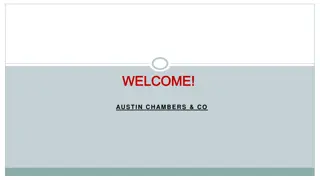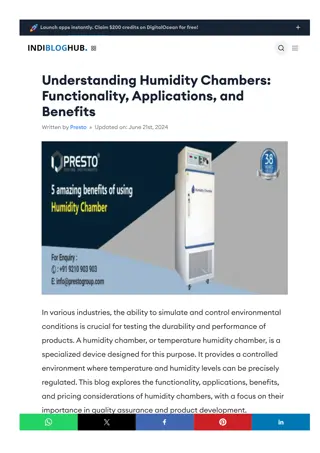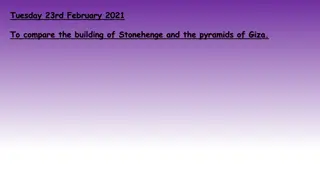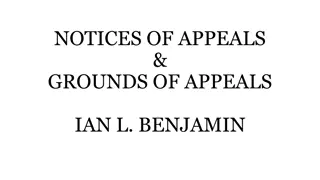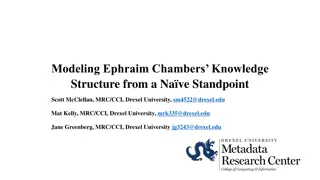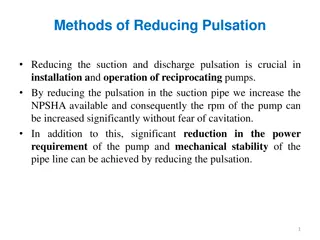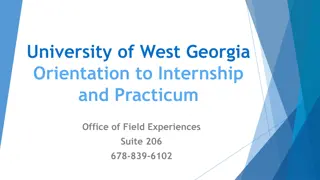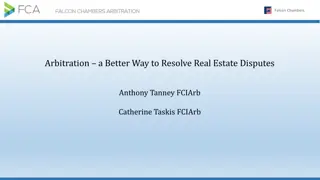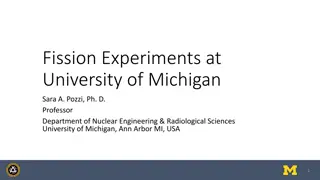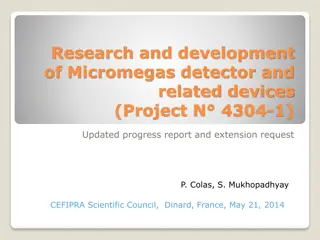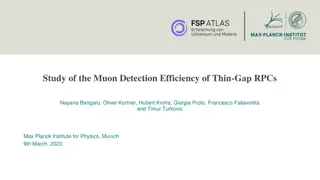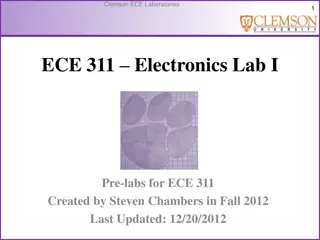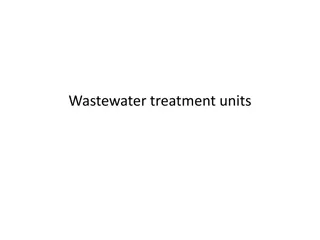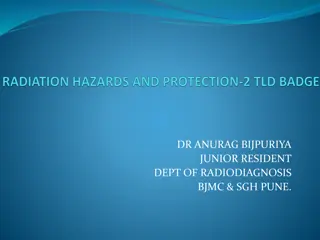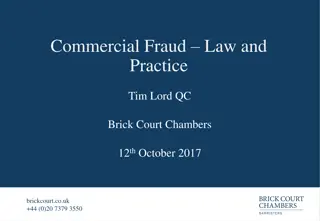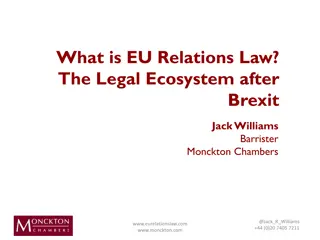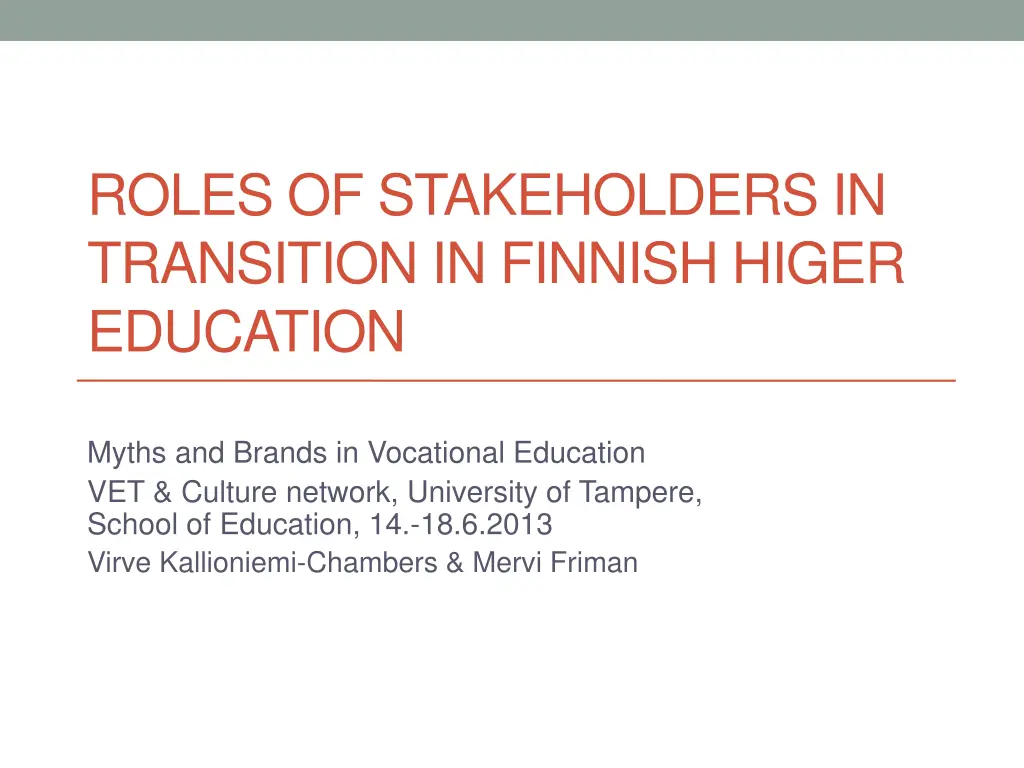
Roles of Stakeholders in Finnish Higher Education Transition
Exploring the roles of stakeholders in the transition of Finnish higher education, focusing on myths, brands in vocational education, and the impacts on research methods and implementation. The stakeholders involved range from EU bodies and ministries to local districts, politicians, and representatives of business life.
Download Presentation

Please find below an Image/Link to download the presentation.
The content on the website is provided AS IS for your information and personal use only. It may not be sold, licensed, or shared on other websites without obtaining consent from the author. If you encounter any issues during the download, it is possible that the publisher has removed the file from their server.
You are allowed to download the files provided on this website for personal or commercial use, subject to the condition that they are used lawfully. All files are the property of their respective owners.
The content on the website is provided AS IS for your information and personal use only. It may not be sold, licensed, or shared on other websites without obtaining consent from the author.
E N D
Presentation Transcript
ROLES OF STAKEHOLDERS IN TRANSITION IN FINNISH HIGER EDUCATION Myths and Brands in Vocational Education VET & Culture network, University of Tampere, School of Education, 14.-18.6.2013 Virve Kallioniemi-Chambers & Mervi Friman
MYTHS/COMPARING (seeHerranen 2004) UNIVERSITIES OF APPLIED SCIENCES UNIVERSITIES Authonomy The idea of Enlightment Open access Transparency Independence Basic research Continuity Close co-operation with labour market Theory and practice Research by request Development work, applied research Shorter temporal perspectives
THE BRANDS/COMPARING UNIVERSITIES OF APPLIED SCIENCES UNIVERSITY Traditional Important (as a part of society) National, global Knowledge production Innovative Practical Local Applying knowledge
TYPES OF STAKEHOLDERS UNIVERSITIES OF APPLIED SCIENCES UNIVERSITIES EU-body Ministeries Local districts Local politicians Representatives of local business life Other HEIs Ministeries Local politicians (municipalities) Representatives of local business life (SME) Trade Unions
ROLES OF STAKEHOLDERS UNIVERSITIES OF APPLIED SCIENCES UNIVERSITIES Administration Financing Research Objects Administration Advisory boards Resource of the R&D objects
EFFECTS OF STAKEHOLDERS ON THE ACTIVITIES In universities: the position of basic research Both: Economy-based activities Both: Development resource for the stakeholders Projects -> Fragmentation
EFFECTS ON RESEARCH METHODS Co-operation provides new perspectives From quantitative to qualitative methods Distance: is it near or far Practice based research The research of processes
EFFECTS ON IMPLEMENTATION Publishing (Open access: research, data) Lack of continuity New products to the markets New projects
A New Brand ? Conditions of good collaboration with stakeholders Ethical aspects Honesty Loyality Trust Shared values Common goals different knowledge interests Critical discussions The threats to the dual system?
TOPICS FOR DISCUSSIONS How would you characterize the roles of stakeholders in your universities What kind of governance do you have in your universities What are the recent changes in your universities (esp. from the viewpoint of stadeholders) What is your describe: what is the current brand of the universities
REFERENCES Analysis on FINHEEC Audit Outcomes 2005 2008, Publications of The Finnish Higher Education Evaluation Council 11:2010 Audit manual for the quality systems of higher education institutions 2011 2017. Publications of The Finnish Higher Education Evaluation Council 15:2012 Friman, M. 2004. Ammatillisen asiantuntijuuden etiikka ammattikorkeakoulutuksessa. (Professional ethics in the education of Universities of applied sciences.) Jyv skyl n yliopisto. Jyv skyl studies in education, psychology and social research 234 Herranen, J. 2003. Ammattikorkeakoulu diskursiivisena tilana. J rjestyst , konflikteja ja kaaosta. (Finnish polytechnic as a discursive space. Order, conflicts and Chaos.)Joensuun yliopisto. Kasvatustieteellisi julkaisuja 85. Kallioniemi-Chambers, V.2010. Kulttuuriset ajan mallit yliopiston pedagogisessa projektitoiminnassa. (Cultural models of time in educational projects at the university). Tampereen yliopisto. Marginson, S. 2012. Korkeakoululaitos omaehtoisena ja yhteiskunnalisena instituutiona julkisen ja yksityisen uudelleen arviointia. Teoksessa H. Aittola & T. Saarinen (toim.) Kannattaako korkeakoulutus. Artikkelikokoelma Korkeakoulutuksen XI symposiumista 22.-23.8.2011. Jyv skyl n yliopisto, Koulutuksen tutkimuslaitos, 19-39. Pietik inen, P, 2012. Hy dyn aikakaudet 1700-luvulta t h n p iv n. (The periods of utility from 18th century to today), Tiedepolitiikka 37 (4). Tierney, W.G.2008. Trust and Organizational Culture in Higher Education. In J.V limaa & O-H.Ylijoki (eds.) Cultural Perspectives on Higher Education. Laws of Universities (2010) and Polytechnics (Universities of Applied Scienes) (2010)

